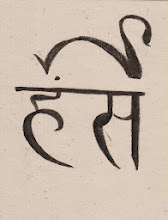In watching 'The Death of Klinghoffer', I found that the music was what really moved me in the production I viewed, and that the images often distracted me. I felt, in some ways, that they took away from the raw power of the music. There is an enormous amount of emotion in that music.
In fact, I was planning on writing a blog about how one branch of new opera seems to stem from Wagner’s "gesamtkunstwerk" ideal in its necessity for pairing the music with a visual aspect (per our discussion of Satyagraha), but I’m not sure that is completely true after watching this opera. I think that Adams' music alone carries a lot of power (perhaps it is my knowing the background of the work already that created this impression) .
“But the Minimalist manner is just one expressive tool in a vast box, used to elongate a moment, to suggest a feeling of the unreal, to evoke a sense of the ominous. Adam’s constant awareness of creating an organism and of the part that colour and idiomatic instrumental writing play, together with his always expressive vocal lines, are non-Minimalist. The final evidence is that the music never simply fills a space, but creates its own sense of time and motion, goes somewhere, does something.”
A few specific compositional choices in 'Klinghoffer' stood out to me. Upon reading the DVD notes, I initially questioned Adams' choice to cast the youngest of the terrorists, Omar, as a mezzo-soprano. It seemed to me to be a strange and possibly out-dated choice. However, Omar's aria comes directly before Mrs. Klinghoffer's aria in the work, making the audience effectively contrast the two characters (or two sides). Making them both female voices only heightens the comparison. I found that this type of comparison was key to Adams idea of balance within the work. In the opera, one rarely gets one side's opinion without getting the other side's voice soon after it. For example, Klinghoffer's first aria is followed by Rambo's response, each of which contain stereotypical opinions of the other, highlighting the misunderstanding between the two characters. In the same vein, to my ears it seemed that all of the male voices sung in the same tessitura much of the time, creating the aural illusion of equality.
Although I may not have given it the attention it deserved, I found that this opera really affected me and pieces of it have been running around in my brain since. One line, specifically, keeps coming back to me, as it seems to sum up the message of the work. After Mamoud's first aria, the Captain responds, “If you spoke like this sitting among your enemies, there would be peace”. It is a sentiment that is extremely timely. It almost makes me think that someone needs to put this opera on again in a revised version that uses the concessions of the film to create sympathy and brings out the messages of the piece loud and clear. Is there some very brave company out there that would take this on?

No comments:
Post a Comment